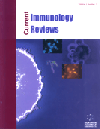-
s Virologic Aspects of Mucosal Transmission
- Source: Current Immunology Reviews (Discontinued), Volume 15, Issue 1, Apr 2019, p. 14 - 27
-
- 01 Apr 2019
Abstract
The transmission of HIV is generally inefficient. Despite the development of a diverse viral quasispecies in a chronically infected individual, a severe genetic bottleneck is observed during transmission, leading to only one or a few genetic variants establishing infection. This genetic bottleneck is the result of both stochastic events and selection pressures, such that viruses with specific traits are favored during transmission. This chapter discusses current models of HIV mucosal transmission, evidence for selection of specific viral traits during this process, and the biological characterization of transmitted founder viruses based on monkey models and human cohorts. The impact of transmitted viral phenotypes on disease progression is also described. Understanding in greater depth the key viral features required for transmission will be essential to the development of effective interventions for HIV prevention.


